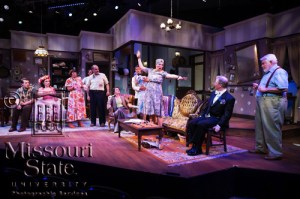by Kitty Felde
It’s the first thing we learn about drama: conflict is the engine that drives the train. So why is it so hard for some writers (ME!) to create and intensify conflict?
The truth is, I don’t like torturing these wonderful characters I’ve created. And I don’t like conflict in real life.
It’s not that I roll over and give up. Instead, I analyze the situation, try to charm my way out of it, win the other person over to my side. I’ll even fight back when I’m mad enough.
If I look at myself as a protagonist, I AM taking action. But it’s not very interesting to an audience.
My most produced play “A Patch of Earth” was all about conflict: a 20-something kid Drazen Erdemovic who found himself in an impossible situation, forced to make an impossible choice. I didn’t create that conflict. It was handed to me on a silver platter, testimony from the International Criminal Tribunal for the former Yugoslavia. It was his story, the story of a Bosnian Serb who served on all sides during the war, finding himself in a corn field outside Srebrenica, learning how to shoot large numbers of people in a short period of time. He didn’t want to do it and told his commander he wouldn’t shoot. “Then stand up with them and we’ll shoot you,” he was told. “And then we’ll go to your village and shoot your wife and young son.” The audience is put into that impossible situation, asking themselves what would THEY do? And arguing about what the just punishment would be for someone who confessed to killing “no more than 70” of the twelve hundred people killed in that cornfield, yet was the first person to tell the outside world about the massacre at Srebrenica.
But what do you do when you don’t have a civil war to create conflict?
It always comes back to the question: “what does my character want?”
If that “want” is small potatoes, nobody cares. It’s got to be important enough to the character to face all odds, go the distance, sacrifice anything, to achieve the goal. It’s got to survive the “so what?” test. If the main character doesn’t get what she wants, so what? The sun will come up tomorrow morning, babies will continue to be born, tea will still take 3-5 minutes to steep.
This is the challenge of a romantic comedy I’ve been fighting with for months. The “so what?” test. So what if Betsy doesn’t get the big story? Does she lose her job? Lose the guy? And if her “want” is so small, why should we care about her? Why should anyone pay $15 (let alone $115!) to see a show where the stakes are undefined? Why should they emotionally invest in a character who’s wants are just “meh”?
It’s time for me as a writer to become brave enough to torture my characters. Give Betsy impossible odds. Trying to overcome those odds will give her more backbone, give her action that will propel the action forward. She’ll survive. (After all, that is the rule of comedy: everyone lives happily ever after.) But make her earn that happy ending.
I suppose that’s the same message to me, the writer: make this play worth the struggle to write it and write it well so that I can earn my happy ending – otherwise known as “end of play.”






